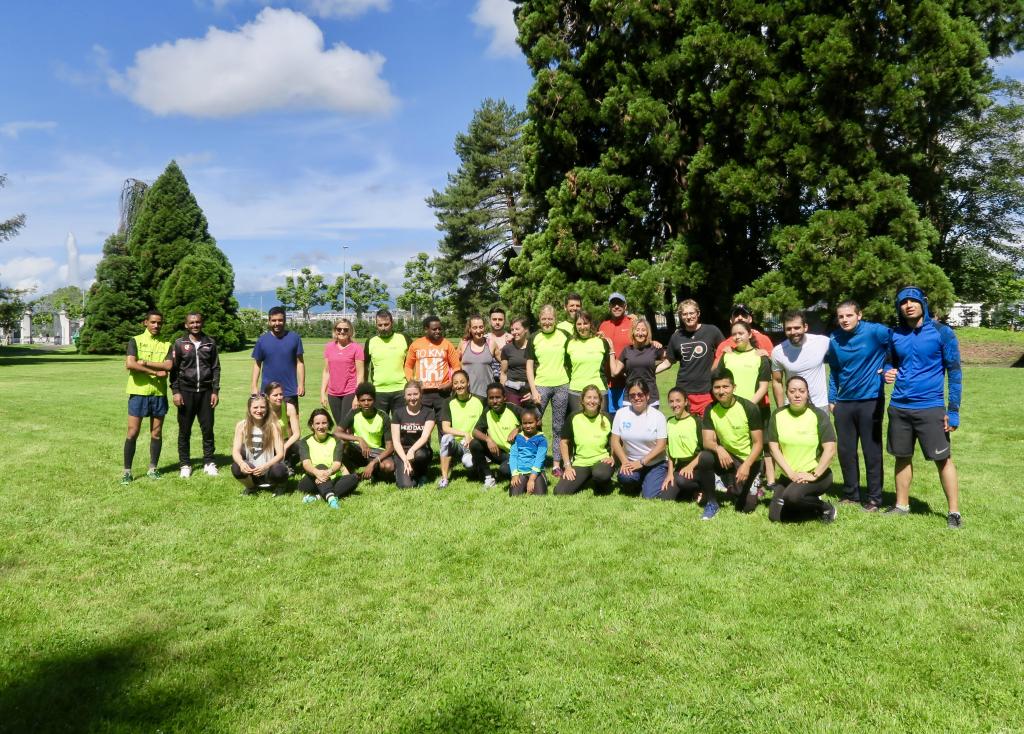In March 2019, I became a member of FLAG21, Geneva. The association (formed in 2017) runs – literally and figuratively – with the aim of helping refugees through sport. Holding running sessions every Saturday, refugees and locals can participate and interact together.
As a fan of football and a student of development studies at the Graduate Institute, I have always believed that sport has a crucial part to play in development. What FLAG21 provides is an atmosphere conducive to supporting and helping refugees better settle into their new surroundings. By carving out a platform that stimulates the integration of locals with refugees, the association: fosters local networks, assists in skill-matching by connecting participants to sporting clubs and beyond, and also aims to sensitise the larger population to the refugee cause.
My connection with FLAG21 happened after a long process. I initially found out about it during a chance meeting at one of the Connexion Career Days in February 2019. A few weeks and lots of emails later, I attended my first running session; the participants came from all over the city.
The sessions, conducted by refugee coaches, promote the creation of a space which encourages equality and respect. From children to adults, everyone comes together and participates, making these sessions worthwhile. In the last three months since I’ve been visiting and exploring every facet of FLAG21, I have met a number of people from different backgrounds. The running sessions, general meetings and even a small picnic have helped me get to know people better.
Just a few weeks into my initial involvement, I decided I wanted to make FLAG21 the focus of my eventual thesis. The potential that sport offers here is immense. Running together on Saturdays is a small part of a larger goal, and I feel that FLAG21 makes a great case for that. The word integration can be tricky if not defined well. Who is integrating with whom? On whose terms is the integration happening? Is it forced or voluntary? These are all questions and challenges that authors have posed in academia to the idea of integration itself. The opportunity to conduct field research in Geneva has not only allowed me to carry out an in-depth analysis, but also create relationships which I hope will last beyond my thesis.
FLAG21 allows for a space where integration is defined by the actors themselves, further enhanced by the association’s participation in races around the city, accompanied by the coaches being invited to train other athletes before big races and as part of local sports clubs.
The work of FLAG21 serves as an example of the potential of sport. I still have much more to explore: my thesis is still a year away and a few thousand words from completion. But the last few months have made me realise that I have only scratched the surface of how sport can help bring about change. As I start an internship at the Refugee Sports Coordination Team at UNHCR, I am only beginning to understand the various possibilities this field holds.
GENEVA GRADUATE INSTITUTE
Chemin Eugène-Rigot 2A
Case postale 1672
CH - 1211 Geneva 1, Switzerland
+41 22 908 57 00
ADMISSIONS
prospective@graduateinstitute.ch
+ 41 22 908 58 98
MEDIA ENQUIRIES
sophie.fleury@graduateinstitute.ch
+41 22 908 57 54
ALUMNI
carine.leu@graduateinstitute.ch
+ 41 22 908 57 55


